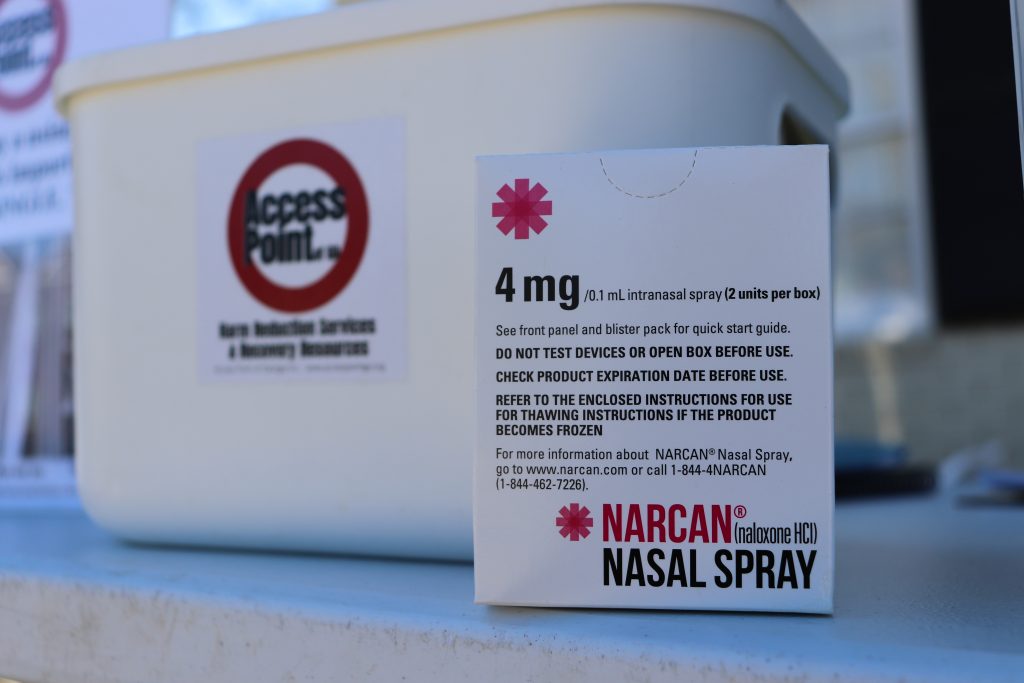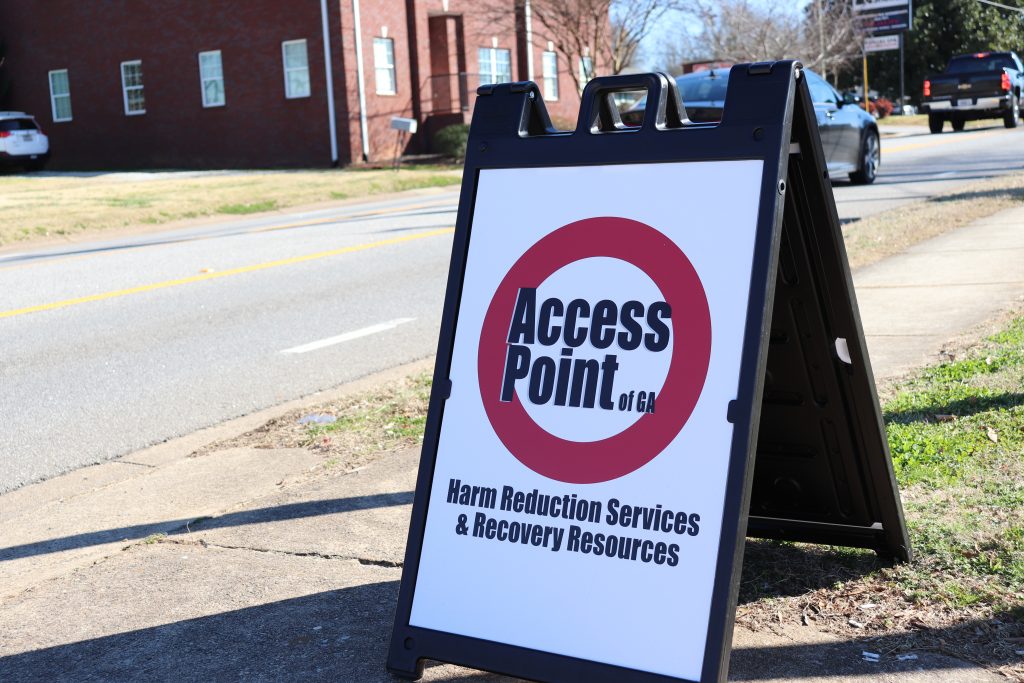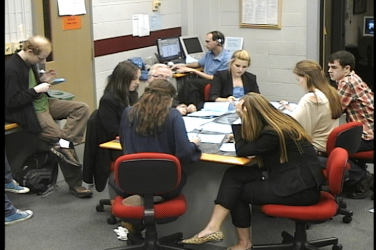While the COVID-19 pandemic has abruptly paused services across the country, one support system can’t be stopped. Access Point of Georgia is trying to remedy the effects of the opioid epidemic by providing people with clean syringes.
In the middle of Athens, a little table on the side of the road is saving lives every Wednesday and Saturday afternoon. Access Point of Georgia is one of only two syringe service programs in the state.
Why It’s Newsworthy: In 2020, the United States saw a record number of drug overdose deaths. Access Point is working to combat the growing opioid epidemic in Georgia.
The concept is simple: people in active drug addiction can stop by to exchange their old needles for new clean ones. They can also pick up free condoms in order to stop the spread of HIV throughout the community.

Access Point also supplies fentanyl test strips to make sure any opioids don’t have other drugs mixed in, and it gives out free Narcan, an opioid reversal drug.
Ali McCorkle works as a treatment provider at the outpatient treatment center Athens Clinic. She also helped start the volunteer-based syringe service program.
“We provide them all the equipment that they would need to inject drugs safely so that they don’t spread hepatitis or HIV or get infections and other things or overdose because we give out a lot of Naloxone,” McCorkle said.
The Pandemic’s Effect
While the COVID-19 pandemic ravages communities across the globe, another health crisis continues to plague the United States. The opioid epidemic has affected millions of lives as more and more people are getting addicted to harmful substances.
Opioid use steadily increased during lockdowns and quarantine. Despite this growing issue, only two syringe service programs operate across Georgia. Athens, a major hub for substance use treatment, houses one of them.
My favorite statistic is people that access harm reduction programs and syringe service programs are five times more likely to go to treatment, so that is one of the resources that we provide,” McCorkle said.
McCorkle works alongside Riley Kirkpatrick, a certified peer specialist, who helped to start Access Point. Kirkpatrick is in recovery himself.

Volunteers at the table have everything from spoons and small water bottles to three different sizes of needles to ensure that people using the service have what they need.
More Harm Than Good?
Although Access Point saves lives, some people think similar programs may be doing more harm than good. Syringe service programs are met with opposition that argues giving out clean needles enables people with substance use disorder. In other words, some think these programs simply allow people to continue using drugs.
While Kirkpatrick says he understands the controversy, he thinks it stems from a misunderstanding of what syringe service programs do. He says that while it doesn’t make drug use any worse, it does minimize the harm that is done as a result of drug use.
“I think the biggest thing that we’re seeing is we’re the only ones in this community that reaches out to active users,” Kirkpatrick said. “Like people who are actively using drugs, there’s absolutely no resources for them. Nothing. And all that they do is get turned away and get judged.”
Access Point aims to help people who are still struggling with active use, but the organization hopes that the people they’re serving will eventually enter treatment. For now, Kirkpatrick and McCorkle want to keep them alive to give them a chance to make that choice.
Overdose deaths are preventable,” Kirkpatrick said.
Access Point currently operates entirely with volunteers and donations but McCorkle and Kirkpatrick hope that the program will continue to expand. With increased community support and the introduction of more syringe service programs, they are confident that organizations like Access Point can save lives and start to remedy the damaging effects of the opioid epidemic.

Sam Perez is a senior majoring in journalism and Spanish and a certificate in New Media Studies in Grady College of Journalism and Mass Communication at the University of Georgia.









Show Comments (0)